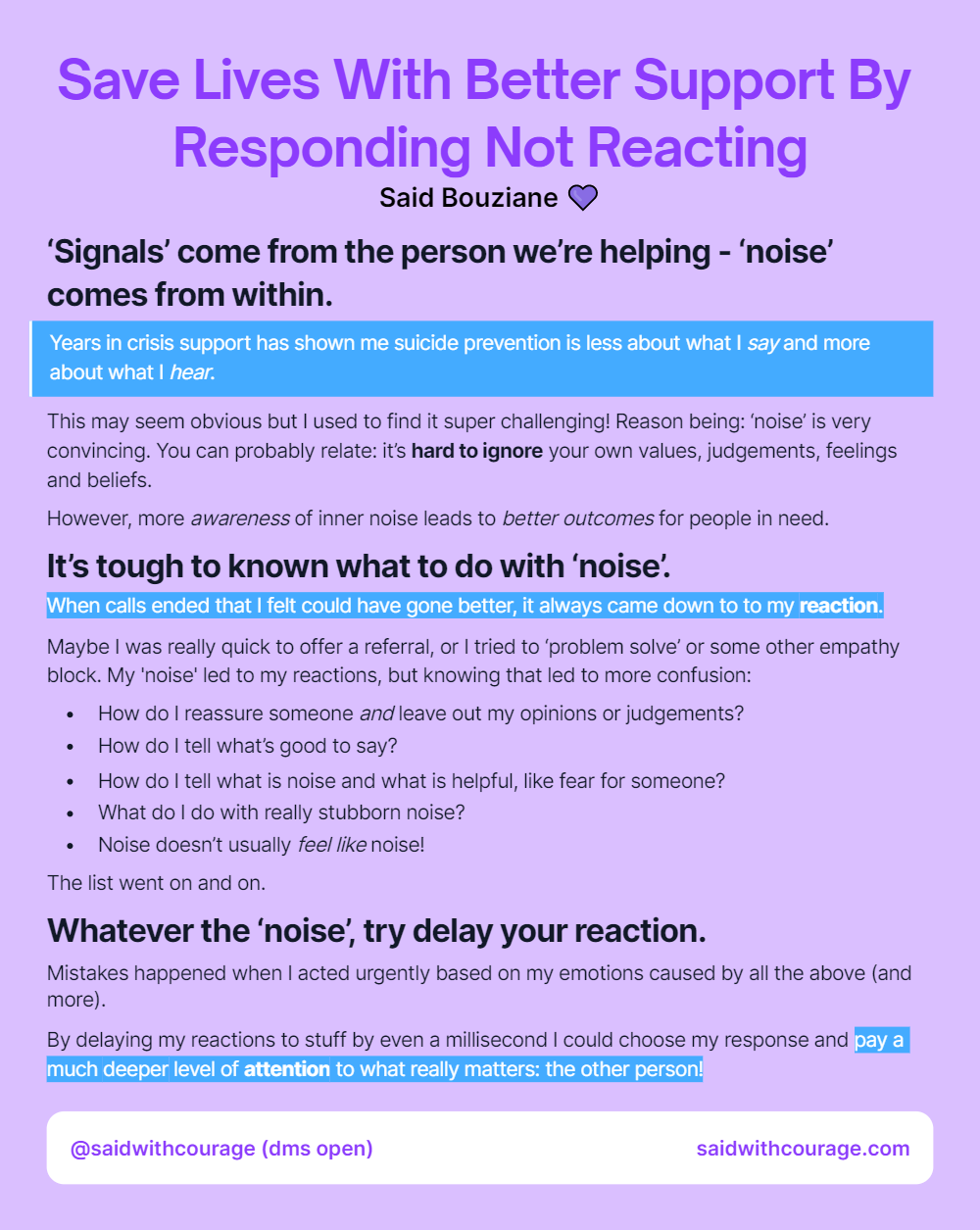‘Signals’ come from the person we’re helping – ‘noise’ comes from within.
Years in crisis support has shown me suicide prevention is less about what I say and more about what I hear.
This may seem obvious but I used to find it super challenging! Reason being: ‘noise’ is very convincing. You can probably relate: it’s hard to ignore your own values, judgements, feelings and beliefs.
However, more awareness of inner noise leads to better outcomes for people in need.
It’s tough to known what to do with ‘noise’.
When calls ended that I felt could have gone better, it always came down to to my reaction.
Maybe I was really quick to offer a referral, or I tried to ‘problem solve’ or some other empathy block. My ‘noise’ led to my reactions, but knowing that led to more confusion:
- How do I reassure someone and leave out my opinions or judgements?
- How do I tell what’s good to say?
- How do I tell what is noise and what is helpful, like fear for someone?
- What do I do with really stubborn noise?
- Noise doesn’t usually feel like noise!
The list went on and on.
Whatever the ‘noise’, try delay your reaction.
Mistakes happened when I acted urgently based on my emotions caused by all the above (and more).
By delaying my reactions to stuff by even a millisecond I could choose my response and pay a much deeper level of attention to what really matters: the other person!

